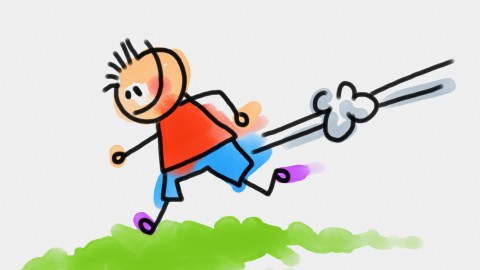Examples Of Approval-Seeking Behavior
7. Not complaining when you’ve received unsatisfactory service or goods: How many times have you moaned and groaned about the food or the service in a restaurant, but, when the waiter cheerfully inquires if everything’s okay, nodded your head and said everything’s fine and dandy?
The worst you might do is to leave a smaller tip, right?
8. Pretending to know or understand something: That awkward moment when someone assumes that you know something or have a particular skill……the approval seeker’s default response in such a situation is to fake it.
The thing is, nine times out of ten, the pretense is exposed.
Sadly, as you’ll probably have already discovered, rather than gaining the approval you seek, you get condemnation or ridicule instead.
9. Feeling the need to apologize even when there’s been no disapproval: It’s always your fault, right?
No matter what has happened and whether or not you had any hand in it – and even if no word of blame has been voiced – the people pleaser will always be the first to apologize.
If there is no error or behavioral faux pas on your part, why should you feel the need to apologize?
10. Expecting compliments or fishing for them and/or being upset they’re not forthcoming: Few things provide the validation you desire better than a compliment.
An approval seeker may set out deliberately, however, to needle those they’re interacting with into voicing praise.
Often, that praise is neither due nor appropriate.
An extension of this type of behavior is to feel upset when the compliments you so desire fail to materialize.
11. Failing to cope with any level of criticism:
Criticism is something you can easily avoid by saying nothing, doing nothing, being nothing. – Aristotle
If your aim is to gain the approval of others, then the concept of criticism is utterly intolerable. It implies you have failed in some way in achieving your goal.
This response is often rooted in childhood when parental criticism or even punishment for failed goals or tasks drove us on to seek approval next time.
If we take note of Aristotle’s advice, though, accepting criticism is actually vital to progress.
12. Behaving in a way that’s contrary to your own beliefs: This is typical behavior in high school, of course: joining the gang just to be amid the ‘popular’ people, even if, in your heart of hearts, you disagree with what they say and/or do.
That’s one thing when you’re a teenager, but quite another when you’re a fully fledged adult.
An approval seeker can easily find themselves in a situation where they don’t follow their heart. They follow their people-pleasing head instead, even if this creates a conflict with their core beliefs.
Tags: Don’t Seek Approval










